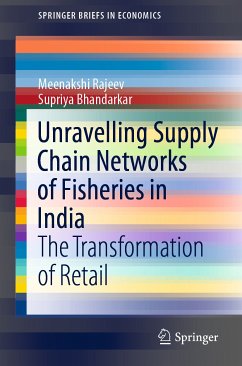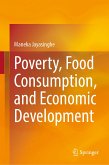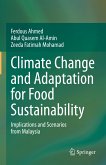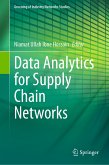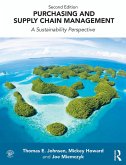A distinctive feature of this book is that it carries out a comprehensive mapping of the fisheries supply chain, by taking into account both marine and freshwater fish. It identifies various players, especially traders who take part in the product flow, irrespective of the impact each of them has on the value provided to the end customer. While members of the supply chain include all individuals or organisations between whom interaction takes place, directly or indirectly from the point of production to consumption, this study also distinguishes between primary and peripheral members to make a complex network more manageable. Moreover, the book provides a comprehensive analysis of the emerging marketingchannels- both organised and unorganised- in this highly perishable food segment. It provides important insights into the current scenario, focusing on the emergence of newer forms of marketing such as multinationals and e-retailing, while highlighting how traditional forms such as 'mom-and-pop' shops have continued to sustain, despite the challenges they face. The findings from India are also compared to global experiences of other fish producing and exporting countries such as Bangladesh, Indonesia, and Thailand to offer a comparison of the differences and similarities in the supply chains of various countries.
The book provides important takeaways for researchers and PhD scholars working in the area of fisheries as well as supply chains. Since this book is based on field visits to different parts of the country it brings out the ground realities along with interesting insights and important policy implications for the sector, and should, therefore, appeal to policymakers as well.
Dieser Download kann aus rechtlichen Gründen nur mit Rechnungsadresse in A, B, BG, CY, CZ, D, DK, EW, E, FIN, F, GR, HR, H, IRL, I, LT, L, LR, M, NL, PL, P, R, S, SLO, SK ausgeliefert werden.

